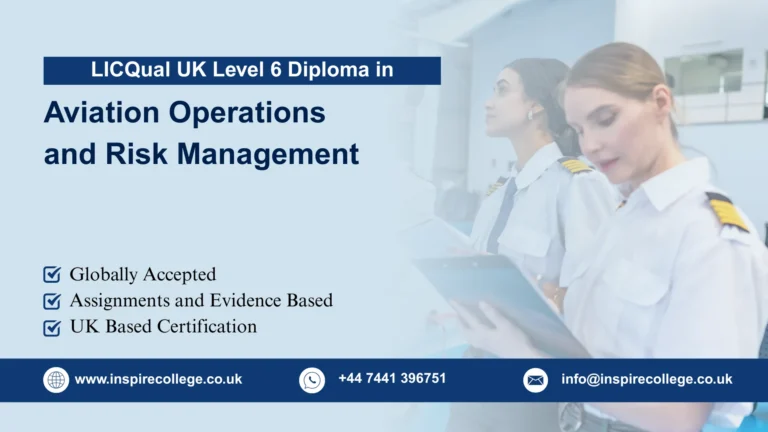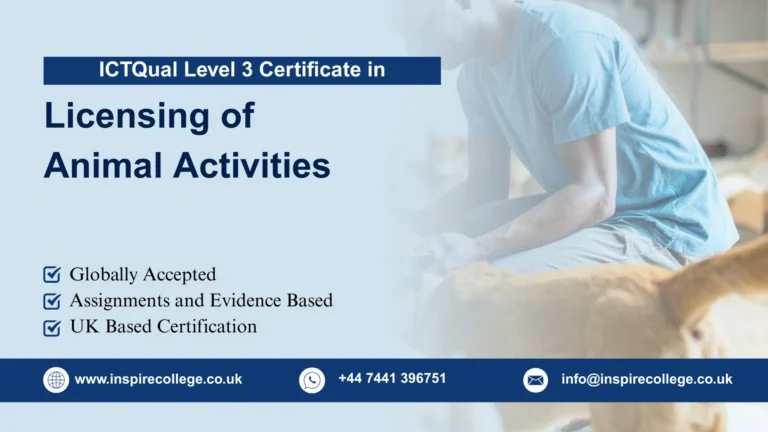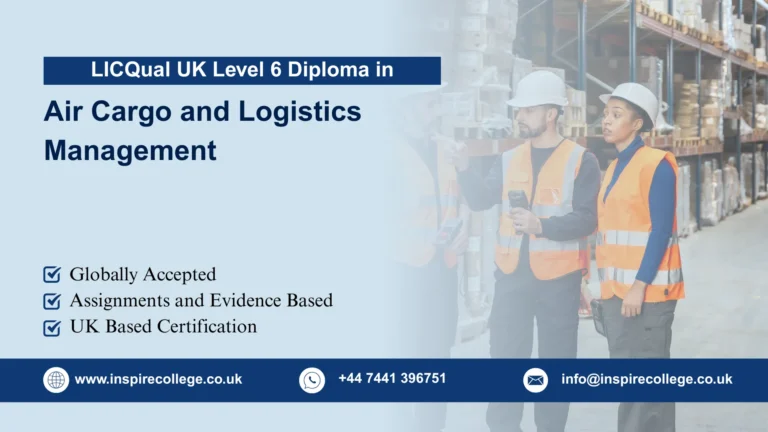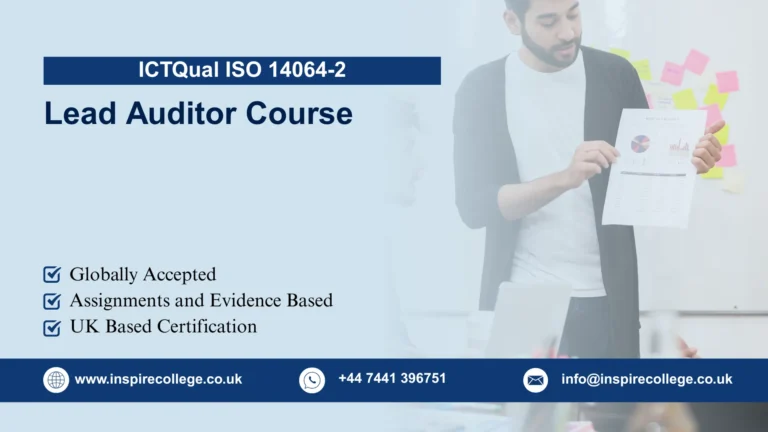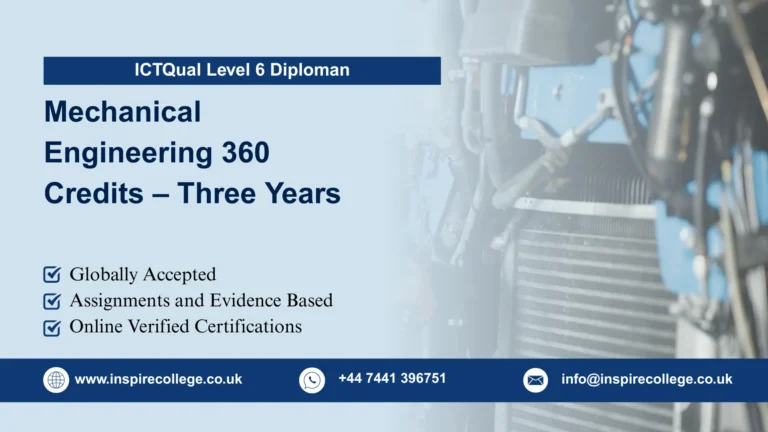
ICTQual AB Level 6 International Diploma in Oil & Gas Engineering
The ICTQual AB Level 6 International Diploma in Oil & Gas Engineering is a globally recognised qualification designed for learners who aspire to excel in the energy sector, particularly in oil and gas exploration, production, and management. This comprehensive programme equips learners with advanced technical knowledge, practical skills, and strategic insight required to thrive in one of the world’s most dynamic industries.
Structured as a three-year, 360-credit programme, the diploma covers foundational principles, intermediate practices, and advanced engineering and management techniques. Learners gain expertise in areas such as drilling operations, reservoir engineering, pipeline management, safety and environmental compliance, and emerging technologies in the oil and gas sector. The programme is ideal for both fresh learners aiming to start a career in oil and gas engineering and experienced professionals seeking to validate and expand their industry expertise.
By enrolling in this diploma, learners develop critical skills in project planning, risk assessment, health and safety compliance, and technical problem-solving, enabling them to manage complex oil and gas operations efficiently. The course also emphasises leadership, communication, and professional ethics, preparing learners for supervisory and strategic roles in engineering projects globally.
Graduates of the ICTQual AB Level 6 Diploma are well-positioned to pursue careers in oil and gas exploration, pipeline management, offshore and onshore operations, energy consultancy, and project management, both within the UK and internationally. With its combination of practical learning, theoretical insight, and industry-relevant skills, this diploma provides a globally recognised pathway for career advancement in the oil and gas engineering sector.
To enrol in the ICTQual AB Level 6 International Diploma in Oil & Gas Engineering, learners must meet the following criteria:
- Age Requirement: Learners must be at least 18 years old at the time of enrolment.
- Educational Qualifications: Candidates should hold a Level 5 Diploma, Higher National Diploma (HND), or equivalent in oil and gas engineering, mechanical engineering, chemical engineering, or related disciplines. Fresh learners with strong foundational knowledge in engineering or energy studies may also be considered.
- Professional Experience (Optional): While not mandatory, applicants with 1–2 years of relevant experience in oil and gas operations, engineering projects, or energy sector roles are encouraged to apply. This experience can enhance understanding and practical application during the course.
- English Language Proficiency: Learners must demonstrate proficiency in English through IELTS (5.5 or above), TOEFL, or an equivalent recognised qualification, ensuring effective engagement with course materials, assignments, and assessments.
- Technical Aptitude: Learners should have basic knowledge of engineering principles, mathematics, and technical problem-solving to successfully complete advanced modules in oil and gas engineering.
- Registration: All learners must register with our ICTQual AB Approved Training Centre to access course materials, learning support, and assessment guidance.
By meeting these entry requirements, learners will be fully prepared to undertake this three-year, 360-credit programme, developing the technical, managerial, and strategic skills required to succeed in the oil and gas engineering industry both in the UK and internationally.
Mandatory Units
This qualification, the ICTQual AB Level 6 International Diploma in Oil & Gas Engineering, consists of 36 mandatory units.
Year 1 – Foundation in Oil & Gas Engineering
- Principles of Oil & Gas Engineering
- Introduction to Petroleum Exploration and Production
- Drilling and Well Engineering Fundamentals
- Construction Materials and Methods in Oil & Gas Projects
- Process Engineering Basics
- Project Planning and Scheduling in Oil & Gas Engineering
- Health, Safety, and Environmental Awareness in Oil & Gas
- Communication and Stakeholder Management in Energy Projects
- Digital Tools and Simulation Software in Oil & Gas
- Financial Management in Oil & Gas Projects
- Quality Assurance and Control in Engineering Operations
- Legal and Regulatory Frameworks in Oil & Gas
Year 2 – Intermediate Oil & Gas Engineering Practices
- Advanced Drilling Techniques and Well Operations
- Resource Management and Allocation in Oil & Gas Projects
- Process Design and Optimisation
- Pipeline and Infrastructure Engineering
- Procurement and Supply Chain Management in Energy Projects
- Project Risk Analysis and Mitigation
- Leadership and Team Management in Engineering Projects
- Offshore and Onshore Operations Management
- Sustainability and Environmental Management in Oil & Gas
- Project Monitoring and Reporting in Engineering Projects
- Problem-Solving and Decision-Making in Oil & Gas Projects
- Communication and Negotiation Skills in Energy Projects
Year 3 – Advanced Oil & Gas Engineering and Strategic Leadership
- Strategic Oil & Gas Project Management
- Advanced Production and Reservoir Engineering
- Energy Systems and Infrastructure Planning
- Innovation and Emerging Technologies in Oil & Gas
- Advanced Risk and Crisis Management in Engineering Projects
- Contract Management and Legal Compliance in Energy Projects
- Leadership in Oil & Gas Projects
- Advanced Project Control and Performance Measurement
- Project Governance and Compliance in Oil & Gas Operations
- Research Methods and Project Analysis in Energy Engineering
- Capstone Project in Oil & Gas Engineering
- Professional Development and Career Planning
Learning Outcomes for the ICTQual AB Level 6 International Diploma in Oil & Gas Engineering:
Year 1 – Foundation in Oil & Gas Engineering
Principles of Oil & Gas Engineering
- Understand the fundamental concepts of petroleum engineering and energy systems.
- Explore the global oil and gas industry, including upstream, midstream, and downstream sectors.
- Identify key roles, responsibilities, and career paths in oil and gas operations.
- Apply basic engineering principles to energy projects and operations.
Introduction to Petroleum Exploration and Production
- Explain exploration techniques, including seismic surveys and geological analysis.
- Understand production methods and reservoir behaviour.
- Evaluate project feasibility and resource potential.
- Identify environmental and regulatory considerations in exploration and production.
Drilling and Well Engineering Fundamentals
- Understand drilling operations, equipment, and well design principles.
- Analyse well planning, casing, and completion methods.
- Identify common drilling challenges and safety considerations.
- Apply basic calculations for wellbore design and pressure management.
Construction Materials and Methods in Oil & Gas Projects
- Describe materials used in pipelines, rigs, and facilities.
- Understand construction techniques for onshore and offshore projects.
- Assess material suitability for safety, durability, and operational efficiency.
- Apply knowledge to support project planning and execution.
Process Engineering Basics
- Understand fundamental process engineering concepts in oil and gas.
- Analyse flow systems, process operations, and unit operations.
- Apply process calculations for efficiency and safety.
- Explore process monitoring and optimisation methods.
Project Planning and Scheduling in Oil & Gas Engineering
- Develop project plans, timelines, and milestones.
- Identify task dependencies, critical paths, and resource requirements.
- Use scheduling tools for efficient project execution.
- Adjust plans to meet project objectives and deadlines.
Health, Safety, and Environmental Awareness in Oil & Gas
- Understand HSE regulations and best practices in oil and gas projects.
- Apply safety protocols in onshore and offshore operations.
- Conduct environmental impact assessments.
- Promote sustainable and safe engineering practices.
Communication and Stakeholder Management in Energy Projects
- Identify key stakeholders and their expectations.
- Communicate project information effectively using verbal, written, and visual tools.
- Manage stakeholder engagement and feedback.
- Resolve minor conflicts to support project objectives.
Digital Tools and Simulation Software in Oil & Gas
- Apply engineering software and digital tools for design, simulation, and monitoring.
- Use modelling software for process and reservoir analysis.
- Analyse data to improve operational decisions.
- Explore emerging technologies in digital oilfield management.
Financial Management in Oil & Gas Projects
- Interpret financial statements, project budgets, and cash flow reports.
- Apply cost management and investment principles.
- Monitor expenditures and identify variances.
- Support financial decision-making in energy projects.
Quality Assurance and Control in Engineering Operations
- Understand quality management principles for oil and gas projects.
- Implement quality control processes to ensure compliance and safety.
- Monitor project outputs against specifications.
- Recommend improvements for operational excellence.
Legal and Regulatory Frameworks in Oil & Gas
- Understand local and international laws governing oil and gas operations.
- Identify compliance requirements for exploration, production, and distribution.
- Apply legal knowledge to mitigate risks.
- Ensure adherence to environmental, safety, and contractual regulations.
Year 2 – Intermediate Oil & Gas Engineering Practices
Advanced Drilling Techniques and Well Operations
- Analyse complex drilling methods, including directional and offshore drilling.
- Plan well operations with risk and safety considerations.
- Optimise drilling performance and efficiency.
- Apply advanced monitoring and troubleshooting techniques.
Resource Management and Allocation in Oil & Gas Projects
- Manage human, material, and financial resources effectively.
- Analyse resource requirements and optimise allocation.
- Monitor utilisation and productivity across teams.
- Adjust resource plans to meet operational goals.
Process Design and Optimisation
- Design and evaluate process systems for oil and gas operations.
- Apply process simulations to improve efficiency and safety.
- Implement optimisation strategies for production and throughput.
- Identify bottlenecks and recommend process improvements.
Pipeline and Infrastructure Engineering
- Plan and design pipelines, storage, and transport infrastructure.
- Understand construction, maintenance, and safety protocols.
- Evaluate environmental and regulatory impacts.
- Apply engineering principles to ensure efficient and safe operations.
Procurement and Supply Chain Management in Energy Projects
- Plan procurement strategies for equipment, materials, and services.
- Manage supplier relationships and contracts.
- Optimise supply chain operations for cost, time, and quality.
- Mitigate supply chain risks in energy projects.
Project Risk Analysis and Mitigation
- Conduct comprehensive risk assessments for engineering projects.
- Develop mitigation plans for operational, financial, and environmental risks.
- Monitor risk factors and update strategies accordingly.
- Evaluate effectiveness of risk management measures.
Leadership and Team Management in Engineering Projects
- Demonstrate leadership skills in multidisciplinary teams.
- Manage team dynamics and resolve conflicts effectively.
- Motivate and guide team members to achieve project objectives.
- Promote collaboration, accountability, and high performance.
Offshore and Onshore Operations Management
- Plan, supervise, and coordinate offshore and onshore operations.
- Ensure compliance with safety, environmental, and regulatory standards.
- Monitor daily operations and performance metrics.
- Implement operational best practices to improve efficiency.
Sustainability and Environmental Management in Oil & Gas
- Apply sustainable practices in exploration, production, and processing.
- Evaluate environmental impacts and implement mitigation strategies.
- Integrate renewable energy solutions and eco-friendly technologies.
- Promote environmental responsibility in engineering decisions.
Project Monitoring and Reporting in Engineering Projects
- Track project progress against timelines, budgets, and objectives.
- Prepare clear and professional progress reports.
- Analyse data to identify delays or inefficiencies.
- Recommend corrective actions to maintain project alignment.
Problem-Solving and Decision-Making in Oil & Gas Projects
- Apply analytical techniques to resolve engineering challenges.
- Make informed decisions based on technical, financial, and operational data.
- Evaluate alternative solutions for feasibility and impact.
- Document outcomes to support continuous improvement.
Communication and Negotiation Skills in Energy Projects
- Communicate effectively with teams, contractors, and stakeholders.
- Apply negotiation strategies to achieve project objectives.
- Resolve conflicts and facilitate collaboration.
- Present technical information clearly for decision-making.
Year 3 – Advanced Oil & Gas Engineering and Strategic Leadership
Strategic Oil & Gas Project Management
- Develop long-term strategies for complex oil and gas projects.
- Align project objectives with organisational and market goals.
- Evaluate operational, financial, and technical factors for decision-making.
- Apply strategic planning to optimise resource use and project outcomes.
Advanced Production and Reservoir Engineering
- Analyse reservoir behaviour and optimise production methods.
- Apply enhanced oil recovery techniques and production modelling.
- Evaluate production efficiency and operational performance.
- Implement strategies for maximising resource extraction.
Energy Systems and Infrastructure Planning
- Design and manage energy infrastructure for oil and gas projects.
- Integrate power, transport, and pipeline systems for efficiency.
- Address technical, logistical, and environmental challenges.
- Plan infrastructure investments and operations for long-term sustainability.
Innovation and Emerging Technologies in Oil & Gas
- Explore emerging technologies such as digital oilfields, IoT, and automation.
- Evaluate innovative solutions to improve efficiency and safety.
- Apply technology to process optimisation and project management.
- Assess feasibility, ROI, and operational impact of new technologies.
Advanced Risk and Crisis Management in Engineering Projects
- Conduct high-level risk assessments for strategic oil and gas operations.
- Develop contingency and crisis management plans.
- Respond effectively to operational emergencies and disruptions.
- Evaluate risk strategies and refine procedures for continuous improvement.
Contract Management and Legal Compliance in Energy Projects
- Administer contracts and agreements for large-scale projects.
- Ensure adherence to legal, regulatory, and contractual requirements.
- Mitigate risks related to leases, procurement, and service contracts.
- Resolve contractual disputes professionally.
Leadership in Oil & Gas Projects
- Lead multidisciplinary teams in complex projects.
- Foster accountability, collaboration, and ethical practices.
- Mentor and develop team members for professional growth.
- Promote organisational objectives through effective leadership.
Advanced Project Control and Performance Measurement
- Monitor project performance using advanced KPIs and control systems.
- Analyse operational, financial, and technical metrics.
- Implement corrective measures to ensure project alignment.
- Prepare detailed performance reports for stakeholders and investors.
Project Governance and Compliance in Oil & Gas Operations
- Apply governance frameworks to ensure transparency and accountability.
- Maintain compliance with statutory, regulatory, and organisational standards.
- Establish monitoring and reporting mechanisms.
- Review and improve governance practices for operational excellence.
Research Methods and Project Analysis in Energy Engineering
- Conduct research to support evidence-based engineering decisions.
- Analyse technical, financial, and operational data.
- Apply statistical and analytical tools for problem-solving.
- Present research findings in professional reports or presentations.
Capstone Project in Oil & Gas Engineering
- Integrate knowledge and skills from all course units into a practical project.
- Demonstrate competence in planning, execution, and management of oil and gas operations.
- Apply leadership, risk management, and innovation to solve real-world challenges.
- Produce a professional report and presentation of project outcomes.
Professional Development and Career Planning
- Develop a personal career plan aligned with oil and gas engineering.
- Identify opportunities for professional growth and continuous learning.
- Build networking, leadership, and strategic decision-making skills.
- Prepare for senior roles in petroleum engineering, project management, and energy consultancy.
The ICTQual AB Level 6 International Diploma in Oil & Gas Engineering is designed for learners who aim to develop advanced expertise in the oil and gas sector, combining technical knowledge with management skills to succeed in a global industry. This programme is suitable for both fresh learners and experienced professionals seeking career advancement.
- Professional Background:
- Graduates or professionals in oil and gas engineering, mechanical or chemical engineering, energy management, or related fields.
- Individuals seeking to transition into oil and gas operations, project management, offshore and onshore engineering, or consultancy roles.
- Key Interests:
- Passion for the oil and gas industry, energy production, and technological innovation.
- Interest in operational efficiency, safety standards, and sustainable energy solutions.
- Desire to integrate engineering knowledge, project management, and risk mitigation for complex oil and gas projects.
- Skills and Attributes:
- Strong analytical, problem-solving, and technical skills in engineering and energy systems.
- Effective communication, negotiation, and leadership abilities for team and stakeholder management.
- Ability to apply regulatory, health, safety, and environmental compliance standards.
- Competence in using digital tools, simulation software, and data analytics in oil and gas operations.
- Career Goals:
- Aspiring to senior roles in oil and gas operations, project management, engineering consultancy, or energy strategy.
- Seeking to manage large-scale engineering projects, offshore and onshore operations, or oilfield development initiatives.
- Keen to develop expertise in areas such as reservoir management, pipeline operations, drilling engineering, and emerging energy technologies.
- Learning Motivation:
- Learners who are committed to completing the three-year, 360-credit programme to acquire comprehensive technical knowledge and practical skills.
- Individuals aiming to gain a globally recognised qualification that enhances employability, professional credibility, and international career mobility.
By enrolling in this diploma, learners will gain the technical, managerial, and strategic skills required to excel in the oil and gas engineering sector, positioning themselves as competent professionals capable of driving operational efficiency, innovation, and safety in global energy projects.
As an ICTQual AB Approved Training Centre, we offer learners two flexible pathways to achieve the Level 6 International Diploma in Oil & Gas Engineering. All learners must register with our centre to enrol and access course materials.
Route 1 – Experienced Professionals
- Designed for learners with at least 6 years of verifiable professional experience in oil and gas operations, engineering, or related sectors.
- Learners submit evidence of prior projects, responsibilities, and achievements demonstrating competence in engineering practices, safety compliance, and project management.
- Our centre evaluates the learner’s existing skills and knowledge against the diploma’s learning outcomes.
- Targeted guidance or additional training is provided if gaps are identified.
- Successful verification results in diploma certification without completing all 36 assignments, enabling fast-tracked recognition of expertise.
Route 2 – Fresh Learners
- Designed for learners without prior professional experience in the oil and gas sector.
- Learners must complete the full three-year, 360-credit programme, including all 36 assignments, case studies, and practical assessments.
- Assessments are structured to demonstrate both theoretical knowledge and practical application of skills in real-world oil and gas engineering scenarios.
- Upon successful completion, learners are awarded the ICTQual AB Level 6 International Diploma in Oil & Gas Engineering.
Both routes provide a globally recognised, industry-relevant qualification, enabling learners to either validate their professional experience or gain comprehensive expertise to advance their careers in the oil and gas engineering sector.
Register Now
FAQs for ICTQual AB Level 6 International Diploma in Oil & Gas Engineering

